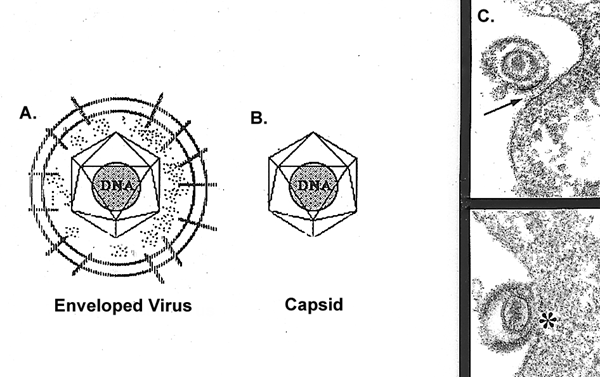非常抱歉,
你要访问的页面不存在,
非常抱歉,
你要访问的页面不存在,
非常抱歉,
你要访问的页面不存在,
验证码:

职称:Assistant Professor
所属学校:University of Southern California
所属院系: School of Medicine
所属专业:Cell/Cellular Biology and Anatomical Sciences, Other
联系方式:(323) 442-1871
Our lab is currently pursuing two main areas of research: 1) identification of the genotype to phenotype correlations in Down syndrome (DS), and 2) investigation of mitochondrial dynamics in neurons. DS, a complex disorder caused by triplication of chromosome 21, is the leading genetic cause of mental retardation. DS patients have numerous clinical manifestations, including early onset Alzheimer's disease (AD). The exact mechanisms underlying those anomalies, however, remain unclear. We believe that Drosophila, with its powerful genetics, is an ideal model system for identifying the network of genes responsible for mental retardation and AD in DS. To identify a gene or a subset of genes responsible for the phenotypes within a functional circuit, we have generated several Drosophila lines that can overexpress different combinations of DS genes. We hope to dissect the molecular interaction network in order to understand the genotype-phenotype relationships in DS. We are also studying mitochondrial motility and dynamics in neurons. Various roles of mitochondria in cells include ATP generation, Ca2+ homeostasis and apoptosis, suggesting that mitochondria are vital for normal neuronal activity and survival. Mitochondria are abundantly present in neuronal cell bodies and synaptic terminals where the demand for energy is high, but mechanisms regulating mitochondrial transport and subcellular distribution are not well understood. We have developed new genetic tools to label and chase mitochondria as well as disrupt mitochondrial function. Using these new tools, we will investigate signals regulating mitochondrial dynamics and the roles of mitochondria in normal and dysfunctional neurons.Our lab is currently pursuing two main areas of research: 1) identification of the genotype to phenotype correlations in Down syndrome (DS), and 2) investigation of mitochondrial dynamics in neurons. DS, a complex disorder caused by triplication of chromosome 21, is the leading genetic cause of mental retardation. DS patients have numerous clinical manifestations, including early onset Alzheimer's disease (AD). The exact mechanisms underlying those anomalies, however, remain unclear. We believe that Drosophila, with its powerful genetics, is an ideal model system for identifying the network of genes responsible for mental retardation and AD in DS. To identify a gene or a subset of genes responsible for the phenotypes within a functional circuit, we have generated several Drosophila lines that can overexpress different combinations of DS genes. We hope to dissect the molecular interaction network in order to understand the genotype-phenotype relationships in DS. We are also studying mitochondrial motility and dynamics in neurons. Various roles of mitochondria in cells include ATP generation, Ca2+ homeostasis and apoptosis, suggesting that mitochondria are vital for normal neuronal activity and survival. Mitochondria are abundantly present in neuronal cell bodies and synaptic terminals where the demand for energy is high, but mechanisms regulating mitochondrial transport and subcellular distribution are not well understood. We have developed new genetic tools to label and chase mitochondria as well as disrupt mitochondrial function. Using these new tools, we will investigate signals regulating mitochondrial dynamics and the roles of mitochondria in normal and dysfunctional neurons.
Our lab is currently pursuing two main areas of research: 1) identification of the genotype to phenotype correlations in Down syndrome (DS), and 2) investigation of mitochondrial dynamics in neurons. DS, a complex disorder caused by triplication of chromosome 21, is the leading genetic cause of mental retardation. DS patients have numerous clinical manifestations, including early onset Alzheimer's disease (AD). The exact mechanisms underlying those anomalies, however, remain unclear. We believe that Drosophila, with its powerful genetics, is an ideal model system for identifying the network of genes responsible for mental retardation and AD in DS. To identify a gene or a subset of genes responsible for the phenotypes within a functional circuit, we have generated several Drosophila lines that can overexpress different combinations of DS genes. We hope to dissect the molecular interaction network in order to understand the genotype-phenotype relationships in DS. We are also studying mitochondrial motility and dynamics in neurons. Various roles of mitochondria in cells include ATP generation, Ca2+ homeostasis and apoptosis, suggesting that mitochondria are vital for normal neuronal activity and survival. Mitochondria are abundantly present in neuronal cell bodies and synaptic terminals where the demand for energy is high, but mechanisms regulating mitochondrial transport and subcellular distribution are not well understood. We have developed new genetic tools to label and chase mitochondria as well as disrupt mitochondrial function. Using these new tools, we will investigate signals regulating mitochondrial dynamics and the roles of mitochondria in normal and dysfunctional neurons.